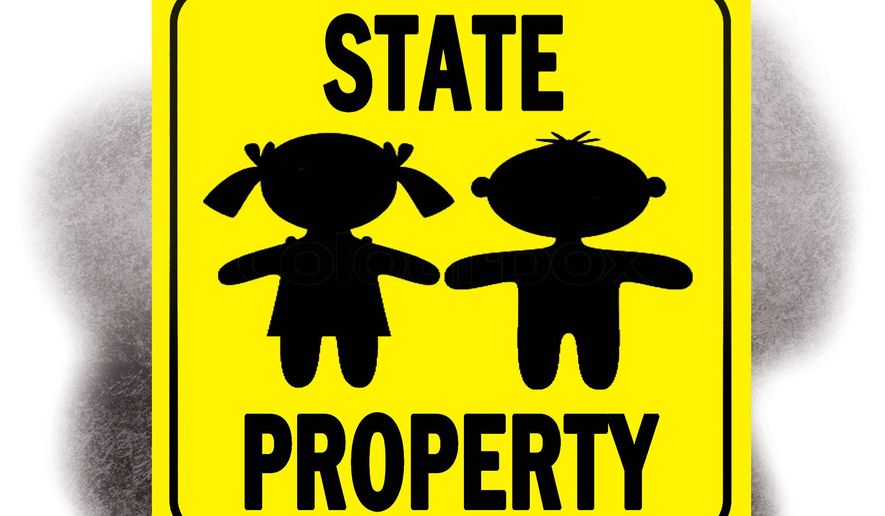OPINION:
For a thousand years, the sheriff was the most important person in law enforcement in the Anglo-Saxon world.
This official, sometimes selected by the king, sometimes by a local lord, sometimes by local election, was responsible for administering justice in a particular jurisdiction.
The sheriff’s authority has relied on the idea — commonplace in the United States and elsewhere as recently as 120 years ago – that local control over law enforcement was essential to preserving liberties. If laws are enforced by those external to the community, it is clear that the administration of justice becomes infected with external considerations.
The preference for local control of law enforcement started to change at the turn of the last century as progressives used the assassination of President McKinley and the attendant fear of anarchists to argue for a broad and aggressive federal law enforcement capacity, entirely beyond the reach of local officials. In 1908, what became the FBI was created.
At the time, those who had reservations about a national police force could not quite articulate their concerns about the nationalization of law enforcement and the potential for federal espionage executed on the citizenry, but those concerns have, of course, been validated across five generations of mayhem, destruction of rights, impairment of justice, and disintegration of the notion of the legal process.
What opponents feared, and what citizens have feared for a thousand years, is that when law enforcement becomes nationalized, it also becomes hopelessly politicized.
It doesn’t matter whether you find yourself on the left, center or right. The FBI has thought, thinks, or will eventually think of you as an enemy to be policed by any means available, licit or otherwise.
Martin Luther King Jr.? Yep. JFK? Yes. President Trump? Of course.
Attorney General Merrick B. Garland has now added parents who pay attention to the curriculum in schools to that list. To some, the addition of suburban moms to the list of domestic terrorist threats seems a bit excessive, even for the crew that brought you Ruby Ridge (maybe that baby was holding a gun) and Waco (we had to kill the children to save them).
But seen through a different lens, the addition of parents to the list of enemies of the regime makes perfect sense.
The entire progressive system of thought is built on the simple and terrible idea that we are all owned by the State. The state-run “education” establishment is the most critical part of the execution of that idea.
Think about it for a moment. How many times have you heard a politician say “our children?” He doesn’t mean the children he and his wife have created or adopted. He means your children that the State now possesses. He means the children who belong to the nation-state rather than their families. As such, their value to the State is to be maximized, irrespective of parental preferences.
This is the toxic result of utilitarianism and progressivism. It is no accident that compulsory school attendance until adulthood, preferably at a state-run school, emerged with progressivism at the turn of the 20th century.
The State’s problem with the suburban moms now tangled up with the “educational” hierarchy is that they think God or nature or whoever has given them children for whom they are responsible. Worse, mothers think of their children as autonomous, not as a property of the regime. That obviously can’t be tolerated.
The two positions cannot be reconciled. Children are either possessions of the State or the responsibility of their parents.
Democratic Virginia gubernatorial candidate Terry McAuliffe did not make a mistake when he said in a recent debate that parents should not be telling schools what they should teach. He was simply and clearly stating his belief that children belong to the State and that parents’ preferences are irrelevant.
Similarly, Education Secretary Miguel Cardona was asked whether parents are the primary stakeholders concerning their own children in recent congressional testimony. He answered: “I believe parents are important stakeholders …”
There was a lot of outrage about the comments. Still, in both instances, these officials correctly and succinctly expressed the operative conclusions from their philosophy that the State owns children.
Next month in Virginia and next year across the nation, parents should vote with a clear understanding of what is at risk. It is no less than the question of whether the State owns their children and grandchildren or whether they belong to God and are given to the parents for safekeeping for a short time.
Decide wisely. Your children’s lives literally depend on it.
• Michael McKenna, a columnist for The Washington Times, is the president of MWR Strategies. He was most recently a deputy assistant to President Trump and deputy director of the Office of Legislative Affairs at the White House.




Please read our comment policy before commenting.